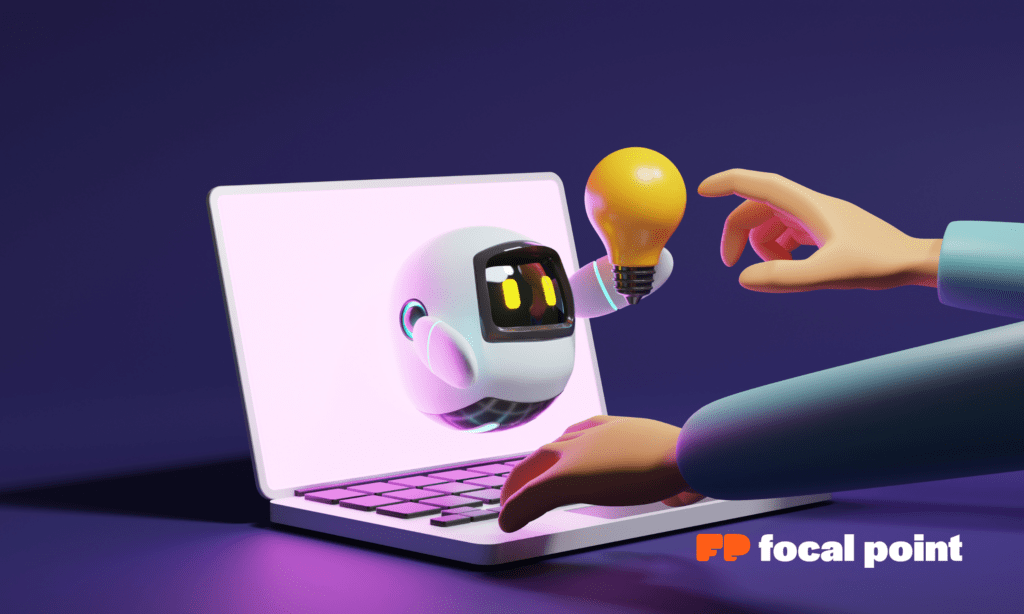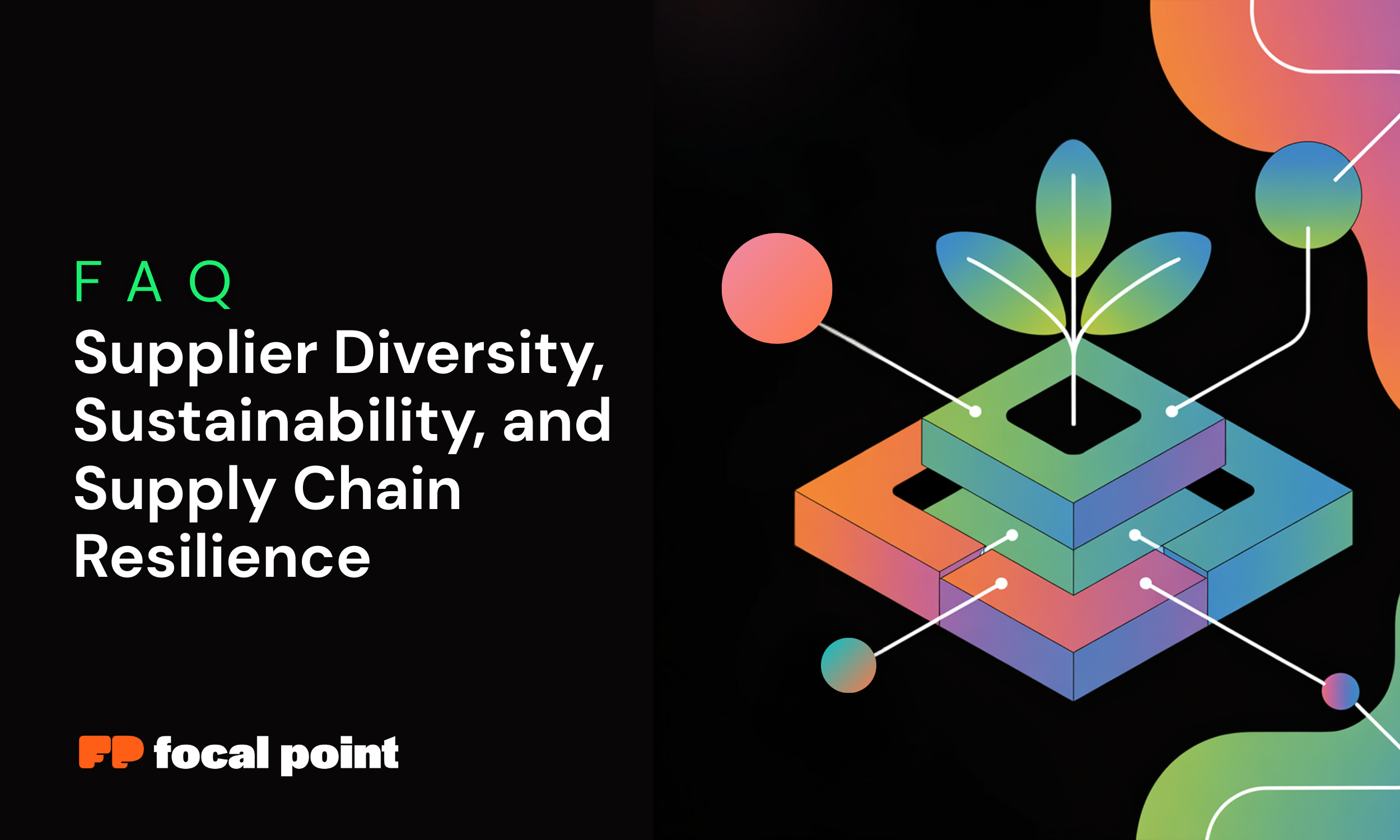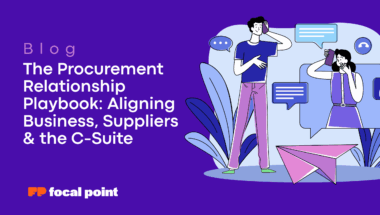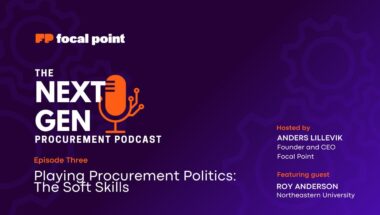Are you prepared to revolutionize your procurement processes with artificial intelligence?
AI is transforming procurement in 2024 by changing how organizations handle sourcing, supplier management, and contract analysis. It uses machine learning, natural language processing, and predictive analytics to boost efficiency, cut costs, and reduce risks.

Imagine predicting future procurement needs, evaluating supplier performance, and automating contract analysis for the best terms within minutes. AI makes these tasks possible.
AI tools analyze vast amounts of data and spot patterns and trends. This information quickly empowers organizations to make proactive, data-driven sourcing decisions. It optimizes supplier selection, improves compliance monitoring, finds cost savings, and manages supply chain risks.
In this article, we will explore the use of AI in procurement. We will discuss its definitions, the shift it brings, and its advantages. We will also examine real-world examples and use cases of AI in procurement, from streamlining processes to promoting sustainable practices.
Join us as we explore AI’s transformative impact on procurement and how it can drive your organization’s success in the supply chain.
Definition and Use of AI in Procurement
Artificial intelligence in procurement refers to using advanced technologies and algorithms that enable machines to perform tasks traditionally carried out by humans in the procurement process but with enhanced efficiency, speed, improved decision-making, cost savings, and accuracy. It involves leveraging AI-powered software solutions to automate and augment various aspects of procurement and supplier risk management. This enables organizations to make better-informed decisions, optimize resource allocation, and drive operational excellence.
Machine learning algorithms, natural language processing, and robotic process automation are a few types of AI tools that can be utilized by procurement. These technologies provide insights, automate routine tasks, and boost efficiency. They help procurement teams make better decisions and manage their resources more effectively.
There’s a pervasive belief that AI will replace human procurement workers, but AI is meant to support and augment people working in procurement, not replace them. Procurement organizations need people who understand emerging technology today and who will adopt AI’s constantly evolving applications.
Artificial intelligence in procurement automates mundane tasks and offers data-driven insights, allowing teams to focus on strategic activities.
The successful integration of Artificial Intelligence in procurement relies on these best practices:
- Define clear objectives and key performance indicators
- Ensure data quality and integrity
- Select the right AI tools and platforms
- Provide adequate training and support for procurement staff
- Continuously monitor and optimize AI performance
Embracing AI in procurement unlocks efficiency, cost savings, and innovation. As the technology advances, it promises to revolutionize how businesses source, purchase, and manage their supplies.
AI can help procurement organizations sift through vast supplier data and market trends to suggest the best suppliers.
It can help you quickly and accurately forecast demand by analyzing sales and external factors, optimizing inventory levels, and preventing stockouts.
Curious to see how AI can serve your procurement team, schedule a demo with us here!
Benefits of AI: The Paradigm Shift in Procurement
AI is revolutionizing procurement processes, offering a new paradigm for how businesses function.
Utilizing AI applications and software is helping procurement teams gain unparalleled efficiency, data-driven decision-making, and improved risk management. This section discusses how AI tools transform procurement, empowering organizations to succeed.
Automation and Efficiency
AI’s integration into procurement can help automate routine tasks. AI systems can autonomously manage purchase orders, invoices, and repetitive processes, significantly reducing manual labor and errors. This automation speeds up the procurement cycle, enhancing efficiency and effectiveness in supply chain management.
With AI handling mundane tasks, your team can dedicate more time to strategic initiatives that add value to your organization.
Data-Driven Decision Making
AI allows procurement professionals to make decisions based on robust data. Its advanced data processing and analysis capabilities allow for quick analysis of vast information, revealing crucial insights and patterns.
You can experience all of this under one dashboard when using the Focal Point Platform.
Your team can quickly and more reliably make decisions using procurement applications of AI based on real-time market trends, supplier performance, and other key data. This approach ensures your organization makes informed choices, optimizes supplier relationships, and maximizes value in every deal.
Predictive Analytics and Risk Management
AI significantly improves risk management in procurement through predictive analytics.
AI tools can predict potential supply chain disruptions, price changes, and other risks by analyzing historical data and market trends. This foresight allows your team to prepare for challenges and develop contingency plans.
Additionally, AI-driven tools provide a comprehensive risk assessment of suppliers, considering factors like reliability, financial stability, and regulatory compliance.
Using AI for risk management, you can help ensure partnerships with reliable suppliers that fit your risk mitigation strategies.
As AI continues to reshape procurement, embracing its capabilities is crucial for staying competitive.
By leveraging automation, data-driven decision-making, and predictive analytics, your organization can optimize procurement processes, cut costs, and build resilient supply chains.
The shift brought by AI in 2024-2025 is not just about adopting new tech; it’s about reimagining procurement and unlocking new growth and success opportunities.
Advantages of Implementing AI in Procurement
The benefits of AI in procurement are numerous. AI is used to transform procurement systems and improve supplier relationship management. AI can automate many repetitive tasks thus freeing up procurement professionals to focus on other essential tasks and complete more work in shorter periods.
AI software leverages applications and allows procurement teams to achieve significant cost savings, minimize risks, improve compliance, and enhance process efficiency.
This transformation with the use of artificial intelligence is crucial for modern businesses.
Benefits of AI in Procurement Include Significant Cost Savings
AI in procurement offers substantial cost savings. AI-powered spend analytics tools automate data analysis, uncovering patterns and anomalies for better decision-making.
These insights help identify cost-saving opportunities, such as unnecessary expenditures and bulk purchasing options. Experts suggest that AI can lead to up to 40% cost savings.
Minimized Risks and Improved Compliance
AI enhances supplier selection, reducing risks and improving procurement performance. AI algorithms evaluate potential suppliers, assessing financial stability, delivery performance, and compliance with environmental standards. This approach minimizes the risk of supplier disruptions and ensures alignment with organizational goals.
AI-powered contract management tools also reduce cycle times, improve operational efficiency, and mitigate risks. These tools automate complex tasks, saving time and resources while ensuring consistent decision-making.
Enhanced Process Efficiency
AI in procurement streamlines and optimizes processes, enhancing operational efficiency.
AI automation reduces manual efforts, minimizes errors, and increases accuracy to around 95% in procurement and supply chain operations. It automates vendor selection and contract negotiation tasks, saving time and resources.
Moreover, AI integration provides access to vast data, transforming decision-making into data-driven strategies. This leads to enhanced efficiency and productivity in procurement.
The procurement software market is projected to grow from $8.03 billion in 2024 to $18.28 billion by 2032, with a compound annual growth rate (CAGR) of 10.8%, driven by AI technologies.
Embracing AI in procurement is essential. While challenges like customization and scalability exist, the benefits of AI implementation are significant.
AI can increase productivity, competitiveness, and cost savings, transforming procurement into a strategic value driver.
The Transformative Impact of AI in Procurement
AI solutions are transforming procurement, offering unprecedented efficiency and innovation. By integrating AI, leaders can leverage advanced analytics and automation. This streamlines operations cut costs and promotes sustainable practices.
AI automates routine tasks like creating purchase orders and evaluating vendors. This automation speeds up procurement cycles, reduces errors, and saves costs.
AI facilitates data-driven decisions by analyzing large datasets for patterns and cost-saving opportunities.
AI helps monitor supplier performance, offering insights into reliability, quality, and compliance. This is vital in industries facing supply chain disruptions.
AI-driven forecasting models optimize inventory levels, considering historical data and market trends. This ensures a resilient and efficient supply chain.
AI enables procurement professionals to focus on strategic activities. They can strengthen supplier relationships, negotiate effectively, and drive innovation. This shift to strategic roles significantly impacts procurement strategies, helping organizations adapt to market changes and stay competitive.
As AI evolves, its impact on procurement will grow. Procurement leaders can explore new growth, innovation, and sustainability opportunities by embracing AI and adapting to new trends. Yet, addressing data privacy, the need for AI skills, and effective change management is crucial for successful AI implementation in procurement.
AI for Operational Efficiency and Cost Reduction
Integrating artificial intelligence (AI) in procurement transforms operational efficiency and drives significant cost reductions.
AI automates routine tasks and leverages advanced analytics to empower procurement teams. This enables them to streamline processes, make data-driven decisions, and identify cost-saving opportunities. This technology is reshaping the procurement landscape, allowing organizations to optimize their supply chains and achieve unparalleled efficiency.
Streamlining Procurement Processes
AI is revolutionizing procurement by automating complex and time-consuming tasks, leading to substantial time and resource savings.
AI-driven automation expedites vendor selection, contract negotiation, and management, enhancing accuracy and consistency in decision-making.
Organizations can streamline their procurement workflows using AI techniques like, machine learning, and natural language processing. This reduces manual intervention and allows teams to focus on strategic initiatives that drive value.
Strategic Spend Analysis
AI-powered analytics are crucial in optimizing procurement spend and identifying cost-saving opportunities.
By analyzing vast amounts of procurement data, AI tools uncover spending patterns, detect anomalies, and provide actionable insights. This strategic spend analysis helps procurement teams identify unnecessary expenditures, opportunities for bulk purchasing, and areas for renegotiations or alternative sourcing.
AI’s real-time and predictive analytics suggest changes in purchase timing and quantities to capitalize on pricing fluctuations and discounts. They also assist in identifying alternative suppliers or materials that offer cost savings without compromising quality.
By leveraging AI for data analysis and predictive insights, procurement teams can optimize their supply chains, respond swiftly to market changes, and enhance their organization’s overall effectiveness.
Furthermore, AI-driven platforms continuously monitor supplier performance and compliance, maintaining productivity in procurement teams.
These intelligent systems alert procurement professionals about contract renewals or compliance issues. This enables timely negotiations and leverages supplier relationships for better pricing and terms. With AI tools like Focal Point, organizations gain enhanced visibility and formulary management. This empowers them to make informed decisions that balance cost and quality in procurement.
Procurement AI vs. RPA
Artificial Intelligence (AI) and Robotic Process Automation (RPA) are key to transforming procurement. RPA automates tasks like invoice processing and supplier onboarding. AI goes further by enabling data-driven decisions and extracting insights from complex data.
The combination of AI and RPA streamlines procurement operations, achieving unmatched efficiency. RPA reduces errors and executes tasks faster than humans, allowing teams to focus on strategy. This can increase employee satisfaction and productivity.
AI tools, like machine learning, analyze procurement databases to uncover patterns and predict future trends. This optimizes supplier selection and demand forecasting, reducing risks. Natural language processing (NLP) enhances AI by connecting human language with procurement data, speeding up contract reviews and enabling conversational procurement.
AI improves with data and experience, while RPA uses software bots for repetitive tasks. A successful strategy combines both, enhancing efficiency and productivity across your organization.
Combining AI and RPA can revolutionize procurement, driving efficiency, cost savings, and data-driven decisions. Embrace this dynamic duo to lead in procurement technology’s fast-paced landscape.
Advancing Sustainable Procurement with AI
Businesses increasingly focus on sustainability, and AI has become a key tool for eco-friendly procurement. AI-driven insights help organizations make decisions that support their environmental goals, leading to a greener future.
AI platforms evaluate environmental, social, and governance (ESG) metrics from diverse sources. They assign suppliers Corporate Social Responsibility (CSR) risk grades. This helps companies monitor their supply chains, boosting trust in sustainable product claims.
Procurement teams can use AI to help select suppliers and identify partners who value sustainability and ethical sourcing.
Eco-friendly Supplier Selection
AI examines vast data to help choose suppliers that match a company’s sustainability goals. Sophisticated algorithms examine ESG metrics, helping procurement teams make informed decisions. This method lowers the risk of missing ethical concerns and speeds up the due diligence process. It ensures companies work with suppliers who are also committed to sustainability.
AI can also forecast the environmental impact of procurement choices by looking at carbon emissions, energy use, and waste. It provides precise demand forecasts and carbon output, aligning procurement with ESG goals. This reduces the ecological footprint of the supply chain.
Monitoring Environmental Compliance
AI is vital in checking suppliers’ environmental compliance, ensuring they meet sustainability standards. By tracking sustainability metrics, AI tools help identify areas for improvement and check compliance with ethical and sustainability standards. This ongoing monitoring is key for an efficient and environmentally responsible supply chain.
AI automation helps audit transactions for emissions limits and report on sustainability progress.
As AI advances, it will include carbon-neutral requisition routing, predictive waste reduction, and automated packaging redesign for sustainability.
Integrating next-generation AI in procurement and supply chain processes boosts sustainability efforts, simplifies compliance, and optimizes value chains.
By using AI for sustainable procurement, businesses can greatly reduce their environmental impact and ensure the integrity of their supply chain. As the world faces environmental challenges, using AI in procurement is a strategic advantage and a responsibility toward a sustainable future.
The Evolving Skillset for Procurement Professionals in the AI Era
The procurement landscape is rapidly changing with the advent of artificial intelligence (AI). Procurement teams must focus and adapt their skills to stay competitive and fully leverage these new technologies. AI is automating routine tasks and boosting efficiency, making strategic thinking, data analysis, and effective communication more crucial.
Within the procurement setting, the ability to analyze data is essential. Professionals need to interpret complex data, uncover valuable insights, and use this information to make informed decisions. Tools like Focal Point, assisted by AI, help identify price trends, negotiate better deals, and potentially save companies millions. By using these tools and improving their analytical skills, procurement teams can increase value creation by up to 200 percent.
AI also allows procurement professionals to focus on strategic tasks, highlighting the importance of a new skill set. To succeed, they must have skills such as:
- Interpreting data and applying digital strategy
- Focusing on broader business goals beyond cost savings
- Effectively managing change and facilitating the adoption of new technologies
- Maintaining soft skills like communication and negotiation
Organizations should invest in training their procurement staff on AI tools and encourage a mindset open to ongoing learning. Continuous learning and development are key to staying relevant in the AI era. A tailored approach based on each company’s needs is vital. Working with external experts and peers helps foster a culture of lifelong learning and keeps up with AI advancements in procurement.
As AI continues to influence procurement, those with technical skills, strategic thinking, and strong soft skills will excel. By embracing AI’s transformative potential and continually expanding their skills, procurement professionals can unlock new innovation and achieve unparalleled efficiency in their organizations.
Ethical and Regulatory Considerations in AI-Driven Procurement
AI’s growing role in procurement demands that organizations tackle its ethical and regulatory sides. Companies like getfocalpoint.com focus on transparent AI decision-making to foster trust with partners and customers. They understand the critical role of ethical AI in procurement.
A study in the World Journal of Advanced Research and Reviews (2024) underscores the importance of guidelines and regulations for AI in procurement. This study, blending surveys and interviews with procurement and legal experts, pointed out worries about algorithmic bias, data privacy, and transparency in AI decisions.
Ensuring Data Privacy and Security
Protecting sensitive data is a key ethical issue in AI-driven procurement. Adhering to data privacy laws is essential for ethical AI use, showing a dedication to privacy and security. Companies must put in place strong security steps to stop AI tool vulnerabilities from being used by hackers.
To protect data privacy and security, procurement experts should:
- Know and follow data protection laws
- Use secure data storage and access rules
- Keep AI systems updated to fix vulnerabilities
- Do detailed security checks and risk assessments
Addressing AI Bias
AI-driven procurement also faces the challenge of algorithmic bias, which can unfairly discriminate in procurement. To lessen this risk, companies need to use bias-fighting strategies. This includes training AI on varied data and updating algorithms for fair treatment of all suppliers.
Procurement pros can fight AI bias by:
- Training AI models on diverse data
- Checking AI for biases
- Keeping AI decisions transparent
- Working with legal and ethical experts for unbiased AI practices
Companies can effectively use AI in procurement by focusing on ethics and setting up the right regulatory frameworks. This ensures fairness, transparency, and accountability. As AI in procurement grows, professionals need to keep up with best practices and new rules. This ensures the responsible and ethical use of this powerful technology.
Key AI Tools Transforming Procurement
Artificial intelligence, especially generative AI in procurement, is revolutionizing industries. AI tools are changing how companies manage sourcing, contracts, and supplier relationships. They use machine learning and natural language processing to improve visibility, streamline processes, and increase revenue. Let’s look at two AI technologies that are transforming procurement.
Machine Learning for Optimized Decision-Making
Machine learning, part of AI, helps procurement teams make decisions based on data. By analyzing historical data, companies can better select suppliers, predict demand, and spot risks. Machine learning algorithms are powerful tools that help solve complex problems and make strategic decisions.
ChatGPT, a popular AI platform, has over 100 million weekly users and saw nearly 1.6 billion visits in December 2023. This shows AI’s growing use in fields like procurement. Machine learning models are trained on various data, validated, and refined through testing for accuracy and reliability.
Natural Language Processing for Conversational Procurement
Natural Language Processing (NLP) is a key AI technology in procurement. It lets machines understand and generate human language, making contract analysis and supplier communication easier. NLP helps automate contract review, extracting important information and spotting risks or compliance issues.
DocuSign Insight uses NLP to improve contract search accuracy, making contract management smoother. NLP-powered chatbots and virtual assistants are also changing how we interact with suppliers. They provide instant support and make communication seamless, acting like an extension of our brains.
As AI advances, the goal of fully autonomous procurement is within reach. But, we must focus on data security and address AI biases for fair and ethical decisions. By using these AI tools wisely, companies can achieve greater efficiency, agility, and innovation in procurement, leading to long-term success in a competitive market.
AI in Procurement: Best Practices for Strategic Optimization
To effectively use AI in procurement, focus on automating tasks that consume a lot of time and resources. AI is great at handling tasks like spend analysis, invoice processing, and contract management. This allows your team to focus on more strategic tasks. By identifying tasks that take up a lot of time and can be automated, you can use machine learning to improve cost categorization, streamline supplier onboarding, and change how you analyze spend. This leads to faster cycle times and better data-driven decisions.
Using data well is key to making AI work in procurement. Collect all the data you can, even if it’s messy, as more data helps AI learn and perform better. AI can combine data from different sources to create a unified spend data source. This gives you real-time analytics and insights for better pricing and spend decisions. By automating reporting and data analysis, AI helps procurement teams optimize spend, improve vendor relationships, and make better decisions.
To get the most out of AI in procurement, create a culture that values experimentation and teamwork between humans and machines. Be open to trying out AI’s features and work with AI experts to test them, seeing early challenges as chances to learn. AI is meant to support your team, not replace it. Encourage teamwork where AI enhances human skills, making procurement processes more efficient and innovative.
By following these best practices and using AI strategically, you can change your procurement function for the better. You’ll see unmatched efficiency, cost savings, and a competitive edge. Welcome the future of procurement, where AI and human intelligence work together to achieve business success and open up new possibilities in supply chain management.
Future Outlook: Unlocking AI’s Full Potential in Procurement
Thanks to ongoing research and development, the future of AI in procurement is set to shine brighter. Large language models and reinforcement learning advancements promise more innovative procurement uses. AI agents can be tailored for various industries, automating tasks like tracking vendor performance and identifying cost-saving opportunities. This automation will free up professionals to concentrate on strategic initiatives.
Generative AI is set to enhance efficiency and strategic decision-making in procurement. AI tools will monitor supplier risk by analyzing market trends and financial reports, aiding in informed procurement decisions. As AI technologies like machine learning and natural language processing advance, their impact on procurement will expand. Experts predict that AI will positively influence 9 out of 14 procurement stages, with this number likely to rise.
The future of procurement with AI is marked by intelligence and automation, full of untapped potential. By harnessing large language models and reinforcement learning for scalability and efficiency, procurement professionals poised for success. Those who develop strategic and digital skills, broaden their business knowledge, and focus on ethical practices will unlock AI’s full potential. This will revolutionize the procurement landscape.



